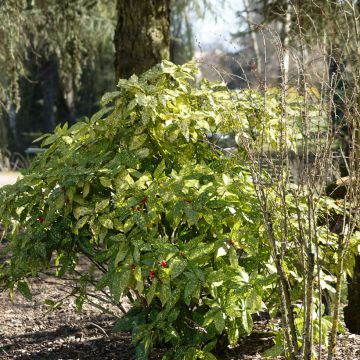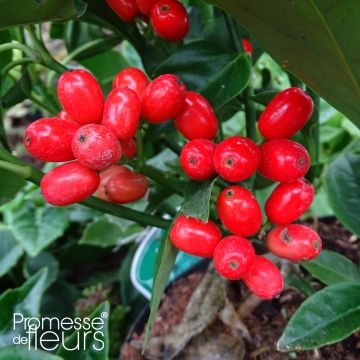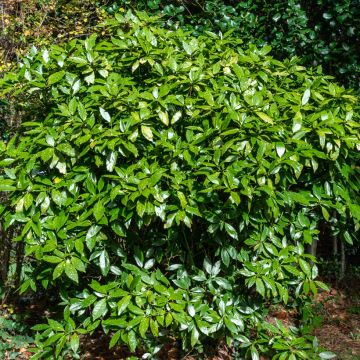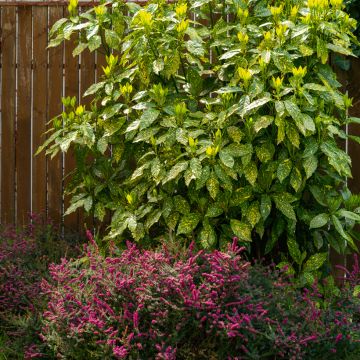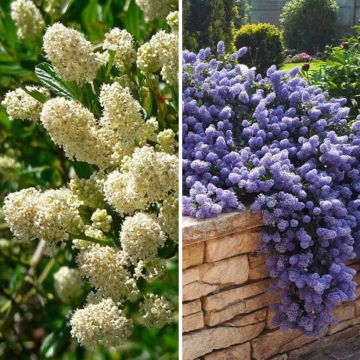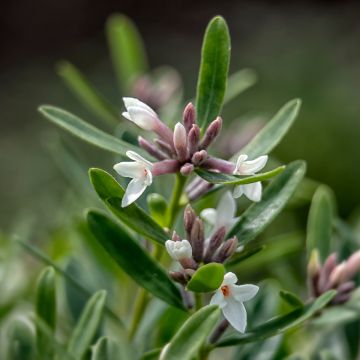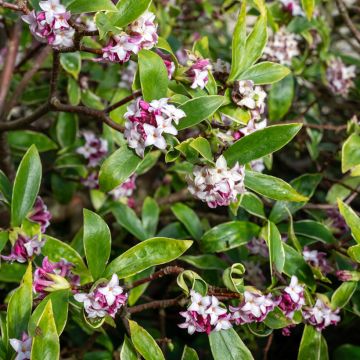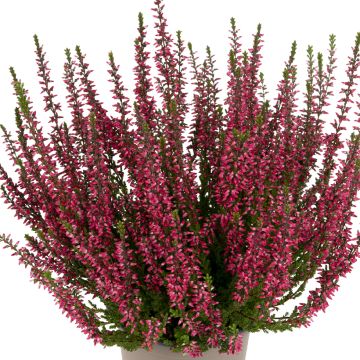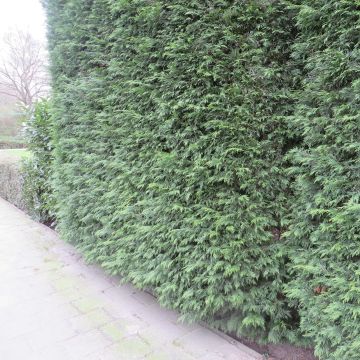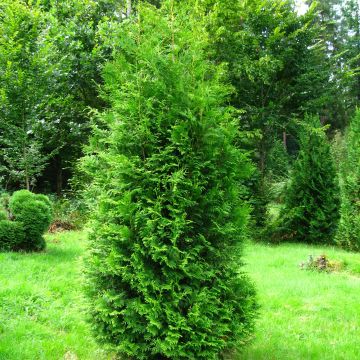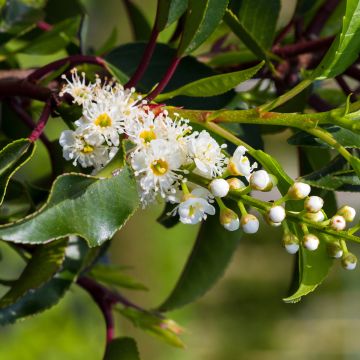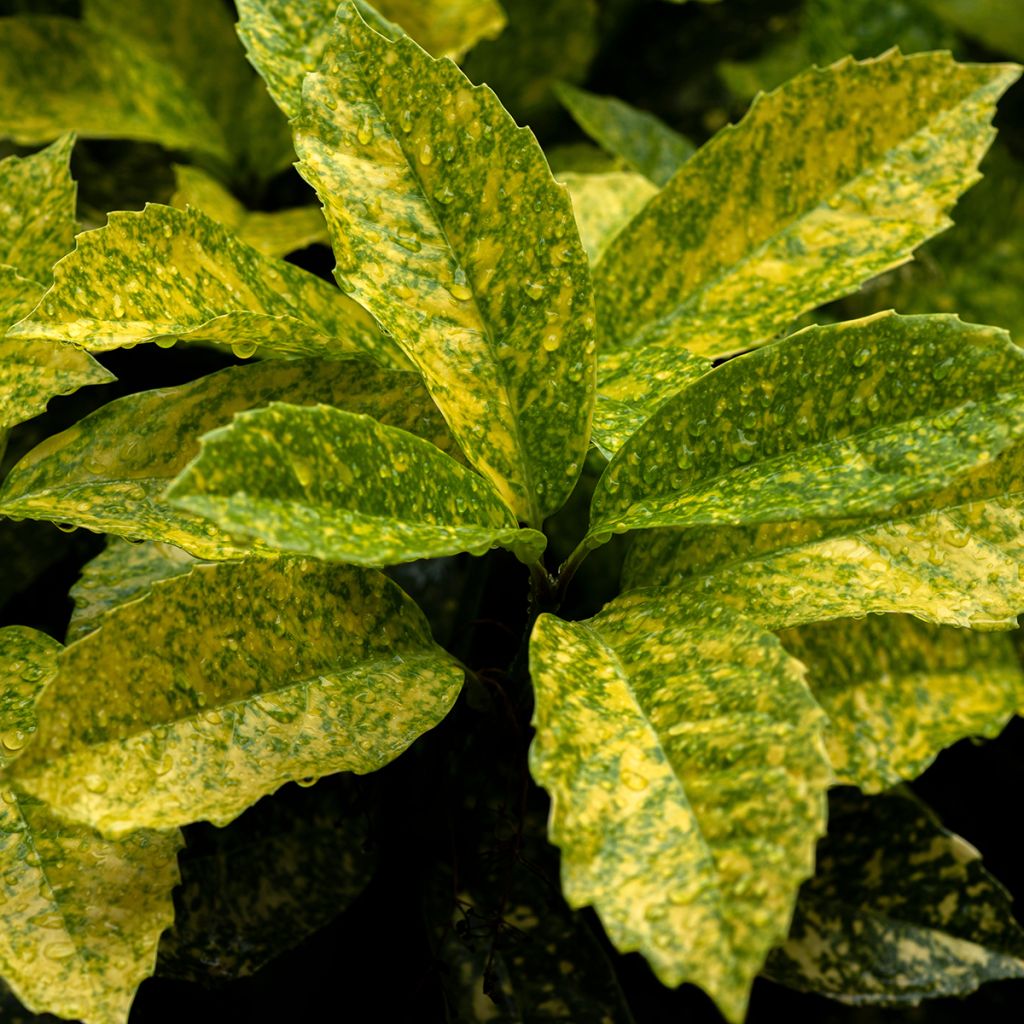

Aucuba japonica Golden King- Spotted Laurel
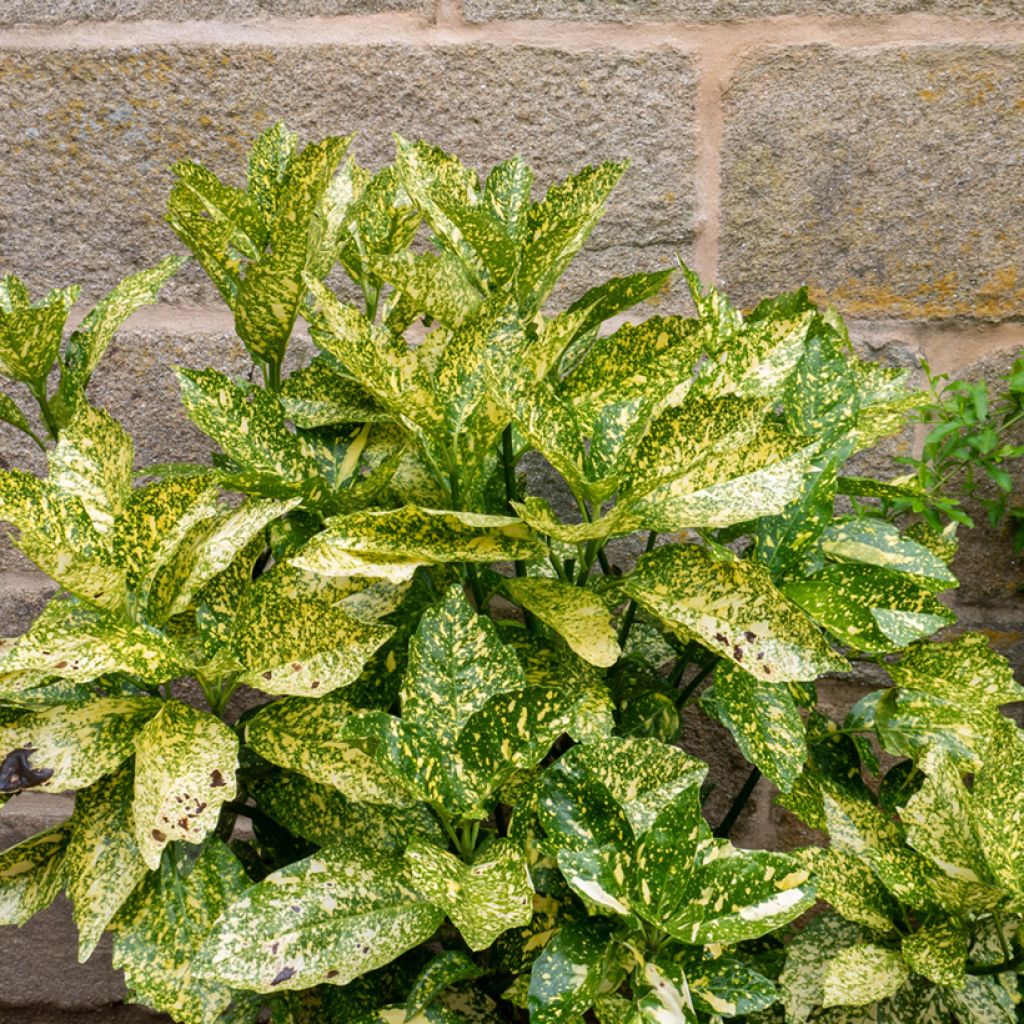

Aucuba japonica Golden King- Spotted Laurel
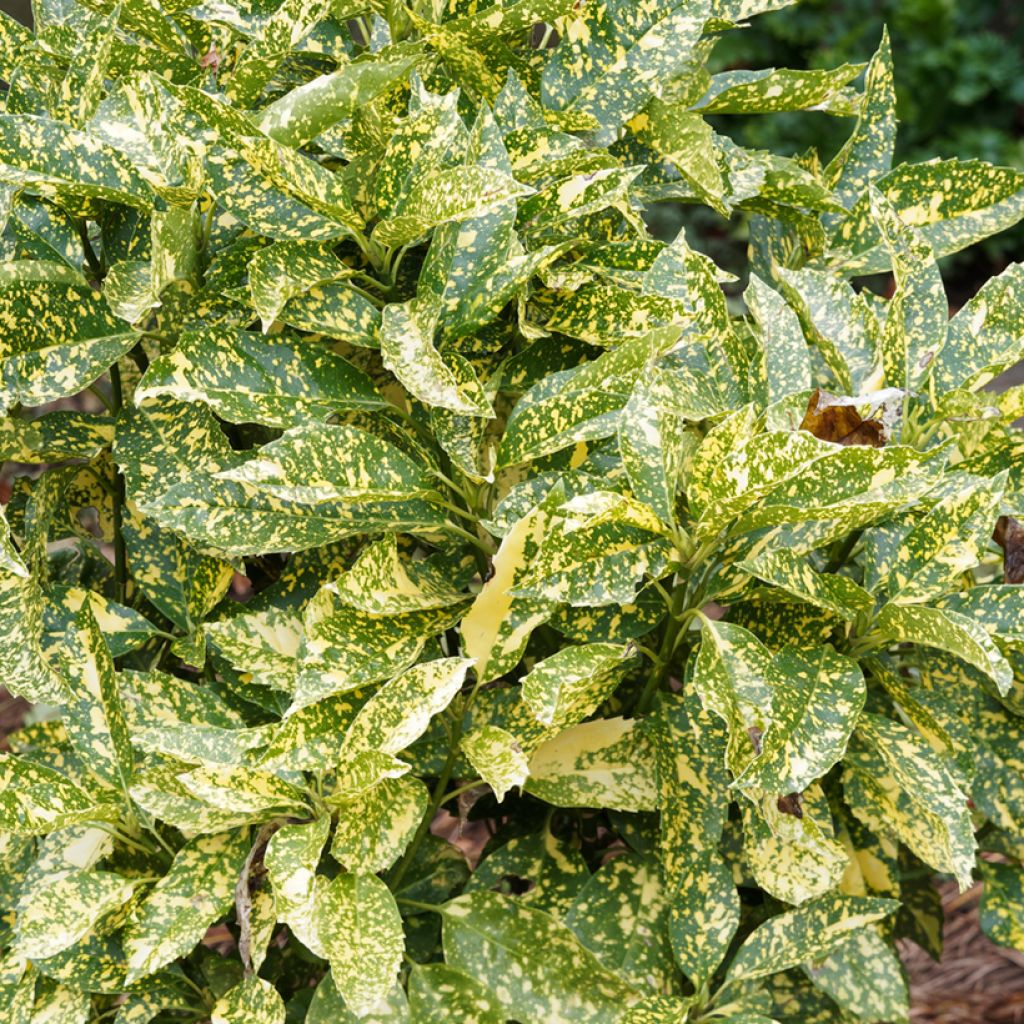

Aucuba japonica Golden King- Spotted Laurel
Aucuba japonica Golden King- Spotted Laurel
Aucuba japonica Golden King
Spotted Laurel, Japanese Laurel
Beautiful young plant, well-developed and balanced.
Patricia, 14/10/2025
Special offer!
Receive a €20 voucher for any order over €90 (excluding delivery costs, credit notes, and plastic-free options)!
1- Add your favorite plants to your cart.
2- Once you have reached €90, confirm your order (you can even choose the delivery date!).
3- As soon as your order is shipped, you will receive an email containing your voucher code, valid for 3 months (90 days).
Your voucher is unique and can only be used once, for any order with a minimum value of €20, excluding delivery costs.
Can be combined with other current offers, non-divisible and non-refundable.
Home or relay delivery (depending on size and destination)
Schedule delivery date,
and select date in basket
This plant carries a 24 months recovery warranty
More information
We guarantee the quality of our plants for a full growing cycle, and will replace at our expense any plant that fails to recover under normal climatic and planting conditions.


Would this plant suit my garden?
Set up your Plantfit profile →
Description
The Aucuba japonica 'Golden King' is a particularly colourful and equally as easy to grow as the typical Japanese laurel species . It stands out with its original and bright foliage, abundantly splashed and speckled with yellow on a dark green background, which remains evergreen throughout the year. Pretty little red berries appear in winter only on female plants. This beautiful rounded bush is perfect for bringing colour and light to shaded areas of the garden, and north/north-east-facing walls, and will make a focal point on a shaded terrace when planted in a large container.
Native to the Far East, Japan, Taiwan, and eastern China, the Japanese Aucuba is a true shade- and cool climate-loving plant belonging to the cornaceae family. In its variegated forms, however, this cousin of dogwoods prefers the filtered light of a gentle sun, which enhances the beauty of its foliage. A dense bush with a rounded habit, the 'Golden King' variety forms a tall and wide bush, reaching 1.50 m (4 ft 11 in) to (6 ft 7 in) in height, with a curious evergreen foliage that is dark green splashed with bright cream-yellow speckles. The oval and elongated leaves measure 10 to 15 cm (3.9 to 5.9 in) in length and 5 to 7 cm (2 to 2.8 in) in width. They are thick, leathery, and glossy. In late spring, the Aucuba produces beautiful clusters of purple flowers, hidden among the foliage. Like Holly, the Aucuba is dioecious, meaning it will either be male or female, and a female plant will only produce small orange-red fruits in the presence of plants of both sexes.
A shade- and partial shade-loving bush, perfectly hardy, the Golden King Japanese Laurel grows quite quickly, likes fertile, slightly acidic, and moist soil, but can tolerate much less favourable growing conditions, including dry soil, allowing for its hardening in almost any garden. Very hardy and easy to grow, it does not require any shaping pruning. Use it as a standalone plant, in a hedge, or at the back of a shaded flowerbed, but also near an east or north-east-facing entrance, next to a hydrangea, a Mexican orange tree, or a Nandina. If your terrace or balcony has a slightly shaded area, it can accommodate this beautiful Aucuba, which will provide a permanent focal point, especially enjoyable in winter under grey and low skies.
Report an error about the product description
Aucuba japonica Golden King- Spotted Laurel in pictures


Plant habit
Flowering
Foliage
Botanical data
Aucuba
japonica
Golden King
Cornaceae
Spotted Laurel, Japanese Laurel
Cultivar or hybrid
Other Aucuba
View all →Planting and care
Grow the Aucuba japonica and its varieties in any type of ordinary soil, preferably fertile, not too chalky to slightly acidic and moist but never waterlogged. It tolerates occasional drought well and is not shy of competition from roots of mature trees. Very hardy in shade and semi-shade, avoid planting it in windy and sunny areas which would damage its beautiful foliage.
Planting period
Intended location
Care
-
, onOrder confirmed
Reply from on Promesse de fleurs
Similar products
Haven't found what you were looking for?
Hardiness is the lowest winter temperature a plant can endure without suffering serious damage or even dying. However, hardiness is affected by location (a sheltered area, such as a patio), protection (winter cover) and soil type (hardiness is improved by well-drained soil).

Photo Sharing Terms & Conditions
In order to encourage gardeners to interact and share their experiences, Promesse de fleurs offers various media enabling content to be uploaded onto its Site - in particular via the ‘Photo sharing’ module.
The User agrees to refrain from:
- Posting any content that is illegal, prejudicial, insulting, racist, inciteful to hatred, revisionist, contrary to public decency, that infringes on privacy or on the privacy rights of third parties, in particular the publicity rights of persons and goods, intellectual property rights, or the right to privacy.
- Submitting content on behalf of a third party;
- Impersonate the identity of a third party and/or publish any personal information about a third party;
In general, the User undertakes to refrain from any unethical behaviour.
All Content (in particular text, comments, files, images, photos, videos, creative works, etc.), which may be subject to property or intellectual property rights, image or other private rights, shall remain the property of the User, subject to the limited rights granted by the terms of the licence granted by Promesse de fleurs as stated below. Users are at liberty to publish or not to publish such Content on the Site, notably via the ‘Photo Sharing’ facility, and accept that this Content shall be made public and freely accessible, notably on the Internet.
Users further acknowledge, undertake to have ,and guarantee that they hold all necessary rights and permissions to publish such material on the Site, in particular with regard to the legislation in force pertaining to any privacy, property, intellectual property, image, or contractual rights, or rights of any other nature. By publishing such Content on the Site, Users acknowledge accepting full liability as publishers of the Content within the meaning of the law, and grant Promesse de fleurs, free of charge, an inclusive, worldwide licence for the said Content for the entire duration of its publication, including all reproduction, representation, up/downloading, displaying, performing, transmission, and storage rights.
Users also grant permission for their name to be linked to the Content and accept that this link may not always be made available.
By engaging in posting material, Users consent to their Content becoming automatically accessible on the Internet, in particular on other sites and/or blogs and/or web pages of the Promesse de fleurs site, including in particular social pages and the Promesse de fleurs catalogue.
Users may secure the removal of entrusted content free of charge by issuing a simple request via our contact form.
The flowering period indicated on our website applies to countries and regions located in USDA zone 8 (France, the United Kingdom, Ireland, the Netherlands, etc.)
It will vary according to where you live:
- In zones 9 to 10 (Italy, Spain, Greece, etc.), flowering will occur about 2 to 4 weeks earlier.
- In zones 6 to 7 (Germany, Poland, Slovenia, and lower mountainous regions), flowering will be delayed by 2 to 3 weeks.
- In zone 5 (Central Europe, Scandinavia), blooming will be delayed by 3 to 5 weeks.
In temperate climates, pruning of spring-flowering shrubs (forsythia, spireas, etc.) should be done just after flowering.
Pruning of summer-flowering shrubs (Indian Lilac, Perovskia, etc.) can be done in winter or spring.
In cold regions as well as with frost-sensitive plants, avoid pruning too early when severe frosts may still occur.
The planting period indicated on our website applies to countries and regions located in USDA zone 8 (France, United Kingdom, Ireland, Netherlands).
It will vary according to where you live:
- In Mediterranean zones (Marseille, Madrid, Milan, etc.), autumn and winter are the best planting periods.
- In continental zones (Strasbourg, Munich, Vienna, etc.), delay planting by 2 to 3 weeks in spring and bring it forward by 2 to 4 weeks in autumn.
- In mountainous regions (the Alps, Pyrenees, Carpathians, etc.), it is best to plant in late spring (May-June) or late summer (August-September).
The harvesting period indicated on our website applies to countries and regions in USDA zone 8 (France, England, Ireland, the Netherlands).
In colder areas (Scandinavia, Poland, Austria...) fruit and vegetable harvests are likely to be delayed by 3-4 weeks.
In warmer areas (Italy, Spain, Greece, etc.), harvesting will probably take place earlier, depending on weather conditions.
The sowing periods indicated on our website apply to countries and regions within USDA Zone 8 (France, UK, Ireland, Netherlands).
In colder areas (Scandinavia, Poland, Austria...), delay any outdoor sowing by 3-4 weeks, or sow under glass.
In warmer climes (Italy, Spain, Greece, etc.), bring outdoor sowing forward by a few weeks.






























